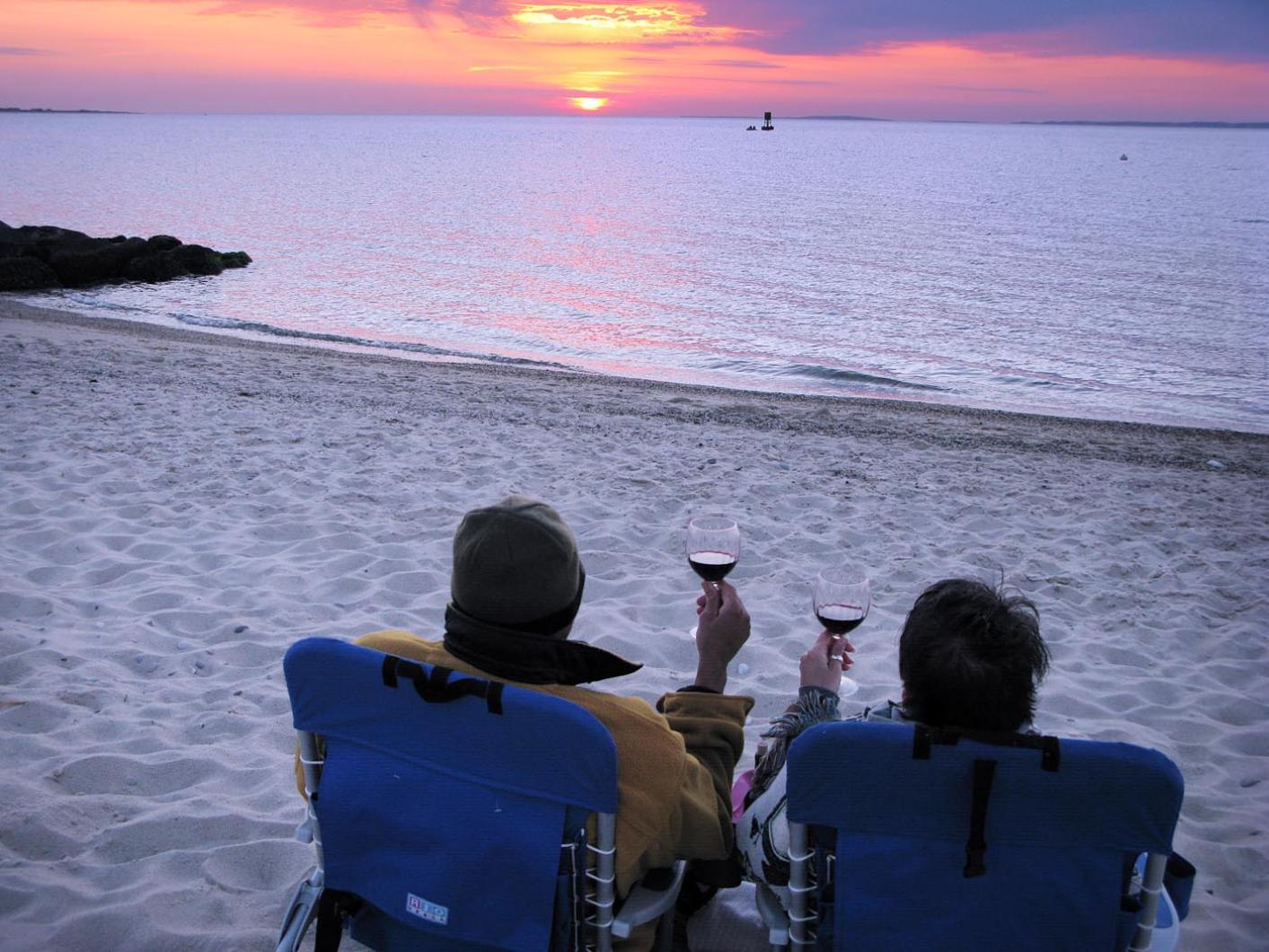After decades of gradual change from a quaint, quiet fishing village into one of the Island’s must-see tourist destinations, Menemsha has not crumpled beneath the pressure of its popularity. Crowds gather daily, with beer-filled coolers and beach chairs to watch the sun make its famous plunge into the ocean. People flock to the harbor to marvel at the fishing boats, then duck into one of the fish markets to claim their catch of the day.
According to Chilmark police chief Brian Cioffi, while there isn’t space to accommodate everyone in a single day, active patrolling on the part of the police department, and the sense of understanding and respect that visitors generally show help keep the atmosphere harmonious.
“It’s not like we stack [Menemsha] full of police officers to keep peace and decorum, because peace and decorum is kept naturally on its own,” said Chief Cioffi in an interview at the department Wednesday. “The reality is, it’s not the police that keep it that way. It’s the people that come there and respect the environment,” he said.
That is not to say there is no need for a police presence. There are generally two traffic officers patrolling parking lots on any given summer day. A regular officer usually joins the patrol during the busier sunset hours.
“There are only 75 parking spaces in all of Menemsha that are actually public parking,” said Chief Cioffi. “The reality is, with only 75 spaces, if people don’t plan parking, they don’t stay.” This year, the department took extra steps in preparing for the influx of summer visitors by posting clear notifications about public parking. Still, some try to dodge the rules and park illegally. The problems occur almost exclusively in the summer. Like other Vineyard towns, Chilmark enlists a group of seasonal traffic patrolmen and special officers to handle the increased activity. This summer — his first as police chief (he was appointed to replace retiring, longtime chief Tim Rich in July) — Chief Cioffi took measures to avoid traffic problems. The department reached out to year-round residents, notifying locals when the more-relaxed approach to winter parking ended. The chief also encouraged his officers to be firm as they monitor parking violations.
“We kind of give [seasonal parking officers] their marching orders at the beginning of the summer. You’re down there to control parking. You’re not always going to please everybody, not everybody is going to be happy with you if you are writing them a ticket, or if you are telling them they can’t park there, but the reality is that we can’t give an inch because we could lose a mile . . . Our biggest problem is if somebody is not there to address that first car, then people follow suit,” the chief said.
Seasonal traffic officer Christina Colarusso admitted that there are certain times of day when more issues arise, but for the most part, people respect the rules and traffic and parking control are manageable, she said.
“Our town takes a community police approach to the problem, and so far it’s been really helpful,” she said. “Sometimes, that’s not always the best way to go, because the people, they mistake your kindness for weakness, and they expect special treatment, [but] it’s all give and take.” She added:
“It does get a little chaotic here and there.” She noted that sunsets pose the biggest parking problems. “It’s a dead end. There are only a certain amount of spots and some people just don’t realize that or make the proper preparations to come earlier or take public transportation.”
She also said this summer has been a little less crowded because of poor weather, but the appeal is still there. “As long as it’s not raining, people are always going to be here,” she said.
“The bottom line is you have so many people that want to come to a place that can only handle so many cars,” said one village worker who preferred to remain anonymous. But he admitted that he’s seen traffic issues decrease. “If anything, this year has been a lot mellower than it has been in the past,” he said.
Surely the weather is one factor, and the economy is likely another, but perhaps some of the change can be attributed to a new chief intent on maintaining a friendly police presence in the village without forgetting the department’s responsibility to keep a sense of order.
“I try to walk the docks every day,” said Chief Cioffi. “A lot of those people are my friends . . . I mean, we’re not Boston. It’s a small, rural community . . . and that’s not such a bad thing.”




Comments
Comment policy »